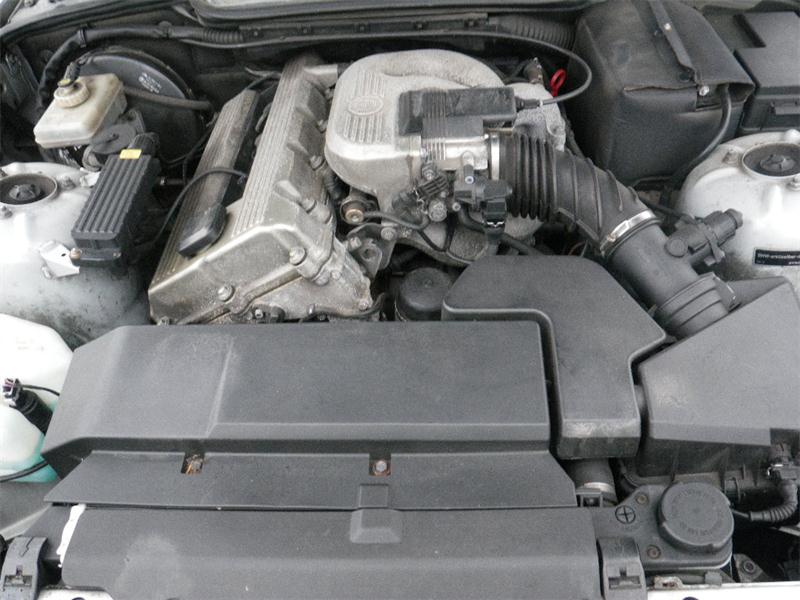Secret Attributes to Seek When Acquiring an Engine for Automotive Applications
When thinking about the purchase of an engine for vehicle applications, a number of essential features require cautious analysis to guarantee optimal efficiency and functionality. From power and efficiency capacities to fuel adherence, sturdiness, and effectiveness to emissions standards, each facet plays an essential duty in identifying the engine's viability for particular automobile needs. Cost-effectiveness remains a crucial variable in the decision-making process, balancing top quality with monetary factors to consider. These features jointly add to the general efficiency and reliability of the engine, influencing the driving experience and long-lasting fulfillment of the individual.
Power and Performance
When picking an automobile engine, customers focus on power and efficiency to make certain optimum driving experience and effectiveness. The power output of an engine, usually determined in horsepower (HP) or kilowatts (kW), dictates the velocity, top speed, and total capacities of a car. Higher power rankings usually lead to quicker acceleration and far better efficiency, particularly throughout overtaking or bring heavy tons. Performance, on the other hand, incorporates a more comprehensive spectrum of features, consisting of gas performance, discharges, dependability, and total driving dynamics. A well-performing engine not just supplies power effectively yet likewise runs efficiently across different rate ranges and driving problems.
Additionally, aspects such as engine turbocharging, crossbreed, and variation innovations play considerable roles in improving both power and efficiency degrees. Ultimately, picking an engine that provides a powerful mix of power and efficiency ensures a rewarding and efficient driving experience.
Gas Performance
Optimizing gas efficiency is an extremely important consideration for customers when reviewing vehicle engine options. Modern engines with features like straight gas shot, turbocharging, and variable shutoff timing can dramatically enhance fuel performance by boosting burning processes and decreasing energy loss.

Longevity and Integrity
Accomplishing durable efficiency and trustworthy operation is vital for consumers reviewing the toughness and integrity of automotive engines. When thinking about an engine for automotive applications, toughness describes the engine's ability to stand up to wear, anxiety, and harsh operating problems over an extended period. Reliability, on the other hand, suggests that the engine can constantly do its desired feature without unexpected break downs or failings.
Consumers ought to try to find engines created with top quality products and specific design to make certain durability. Elements such as crankshafts, pistons, and bearings need to be durable to handle the engine's power outcome without premature wear. In addition, engines outfitted with sophisticated air conditioning systems, effective lubrication, and robust filtering mechanisms have a tendency to display greater degrees of dependability.
Regular upkeep and adherence to supplier recommendations are additionally essential factors in protecting an engine's sturdiness and dependability. By adhering to maintenance routines, making use of recommended liquids, and dealing with any concerns promptly, consumers can make best use of the life expectancy and efficiency of their vehicle engines. Eventually, prioritizing resilience and reliability in engine selection can bring about a more satisfying possession experience with less unanticipated interruptions.
Exhausts Compliance
Guaranteeing compliance with discharges policies is a crucial element of reviewing automotive engines for eco mindful consumers. With increasing issues about air quality and ecological impact, strict emissions criteria have been implemented around the world to reduce harmful pollutants launched Extra resources right into the atmosphere. When purchasing an engine for vehicle applications, it is necessary to consider its exhausts conformity to decrease the carbon impact and stick to legal needs.
Modern engines are equipped with advanced emission control innovations such as catalytic converters, exhaust gas recirculation (EGR) systems, and careful catalytic decrease (SCR) to reduce dangerous exhaust gases like nitrogen oxides (NOx), carbon monoxide gas (CARBON MONOXIDE), and hydrocarbons (HC) These systems play an important duty in making certain that the engine meets the defined emissions standards and operates within allowable limits.

Cost-effectiveness
When considering vehicle engine acquisitions, evaluating cost-effectiveness is critical for customers seeking both efficiency and value. Cost-effectiveness in engine acquisition involves more than just the first acquisition cost. It encompasses the general expenses associated with upkeep, gas consumption, and potential repair services over the engine's lifespan. Choosing an engine that supplies an equilibrium in between lasting savings and in advance costs can lead to considerable benefits for the customer.
One trick facet of cost-effectiveness is fuel efficiency. Engines that are designed to maximize gas economic climate can cause significant financial savings with time, particularly for individuals who drive regularly or over long ranges. Additionally, taking into consideration the schedule and affordability of spare parts and maintenance can contribute to the overall cost-effectiveness of an engine. Guaranteeing that maintenance and repair services are reasonable and easily accessible can avoid unforeseen financial problems down the line.

Verdict
Finally, when buying an engine for auto applications, it is important to consider essential features such as power and efficiency, fuel efficiency, integrity and longevity, exhausts compliance, and cost-effectiveness. These elements are essential in guaranteeing that the engine satisfies the needs of the lorry and runs effectively in numerous driving conditions - bmw 318ti. Making an educated choice based upon these criteria will ultimately bring about a effective and effective auto engine acquisition
From power and efficiency capacities to sustain performance, longevity, and adherence to exhausts standards, each aspect plays an essential duty in figuring out the engine's viability for certain auto requirements. Engines created to run on alternative fuels such as electric power, hybrid systems, or biofuels can use improved gas economy and lower exhausts compared to traditional gasoline or diesel engines. Customers ought to thoroughly think about the gas performance ratings and technologies incorporated right into automotive engines to make enlightened getting decisions that straighten with their top priorities for price financial savings and sustainability.
When taking into consideration an engine for auto applications, sturdiness refers to the engine's ability to withstand wear, stress, and rough operating problems over an extended period.In final thought, when acquiring an engine for automobile applications, it is crucial to take into consideration key features such as power and performance, gas integrity, performance and longevity, exhausts compliance, and cost-effectiveness.
Comments on “Exactly how to Maintain Your BMW 318ti Running Efficiently for Years”